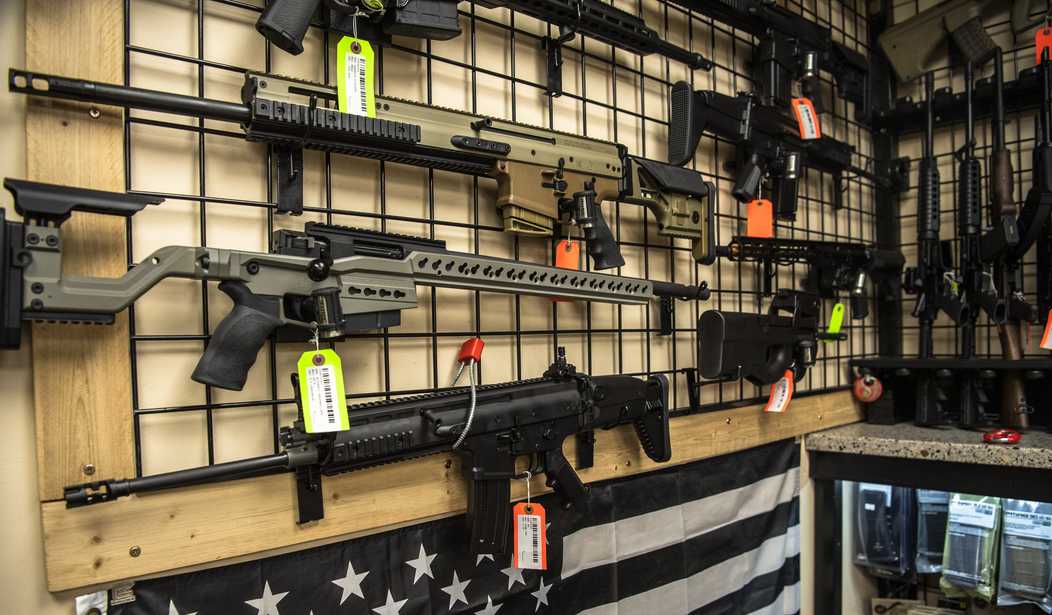U.S. District Judge Stephen McGlynn gave gun owners the best kind of a Friday afternoon document dump: a 168-page ruling declaring the ban on so-called assault weapons and large capacity magazines imposed by Illinois lawmakers a violation of the Second Amendment.
I've not had time to read the opinion in its entirety, but here are the biggest takeaways.
In his decision, McGlynn called the AR-15 the "Rorschach test of America’s gun debate"; for some Americans it's a dangerous and unusual "military style assault weapon" not substantially different than the select-fire rifles used by the U.S. military. For others, including McGlynn himself, the AR-15 and other semi-automatic firearms banned under the Protect Illinois Communities Act are commonly owned and in common use for lawful purposes, and fall under the Second Amendment's protections.
... the Court holds that the Plaintiffs have met their burden to demonstrate that the AR-15 and other AR-style weapons are protected “Arms” within the definition advanced by the Seventh Circuit in Friedman and Bevis. Additionally, the Court holds that the various other “assault weapons” proscribed by PICA (including AK-type weapons, various semiautomatic shotguns, and what the Government calls “submachineguns”) are also “Arms,” as are the thirty-round large capacity magazines and various firearm attachments designated by PICA. To reiterate, all of these weapons, magazines, and attachments are bearable, not dangerous or unusual, and are in common use. Moreover, they are all possessed for lawful self-defense purposes, are either not predominately useful for military service or are dual-use items, and are not possessed for unlawful purposes.
McGlynn, however, concluded that ".50 caliber ammunition and weapons restricted by PICA are not 'Arms' as they are not in common use for self defense" and therefore "Illinois can lawfully ban .50 caliber weapons and ammunition." along with belt-fed weapons and grenade launchers.
Many Second Amendment advocates will certainly disagree with that portion of McGlynn's decision, but that's about the only fault they're likely to find with his ruling. McGlynn described PICA as an "unconstitutional affront to the Second Amendment" that must be enjoined, declaring "the Government may not deprive law-abiding citizens of their guaranteed right to self defense as a means of offense."
Sadly, there are those who seek to usher in a sort of post-Constitution era where the citizens’ individual rights are only as important as they are convenient to a ruling class. Seeking ancient laws that may partner well with a present-day infringement on a right proclaimed in the Bill of Rights without reading it in conjunction with the aforementioned history is nonsense. The Statute of Northampton cannot in the least bit be used to vex the rights of Illinois citizens in the 21st century to keep and bear arms. The oft-quoted phrase that “no right is absolute” does not mean that fundamental rights precariously subsist subject to the whims, caprice, or appetite of government officials or judges.
McGlynn granted a permanent injunction against "the provisions of PICA criminalizing the knowing possession of specific semiautomatic rifles, shotguns, magazines, and attachments," as well as the registration requirements imposed by the law.
As the prohibition of firearms is unconstitutional, so is the registration scheme for assault weapons, attachments, and large-capacity magazines. Therefore, the State of Illinois is ENJOINED from enforcing the firearm registration requirements and penalties associated with entering false information on the endorsement affidavit for non-exempt weapons, magazines, and attachments previously required to be registered.
Unfortunately, McGlynn's decision doesn't mean that these items will be available to purchase in Illinois gun stores tomorrow. The judge stayed his decision for 30 days to allow Illinois Attorney General Kwame Raoul time to appeal to the Seventh Circuit, and the appellate court is almost certain to keep the law in place while the appeal is underway.
Still, McGlynn's decision is solid and sound, and could very well have an impact on the Supreme Court. The justices will soon consider granting cert to a challenge to Maryland's ban on so-called assault weapons, and McGlynn has given them 168 pages of good reason to accept the case and proclaim once and for all that these arms are protected by the Second Amendment, and the prohibitions on their purchase, manufacture, and possession cannot stand.








Join the conversation as a VIP Member